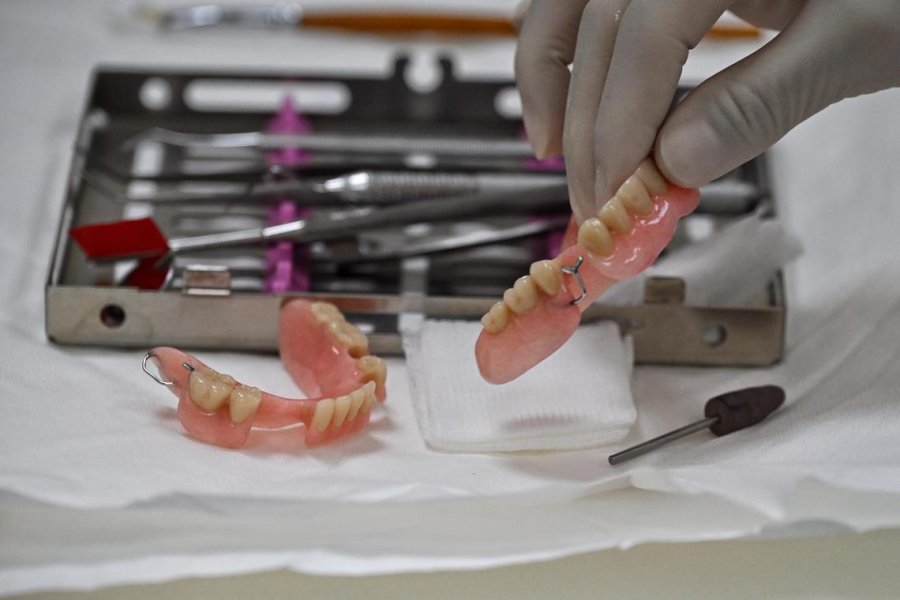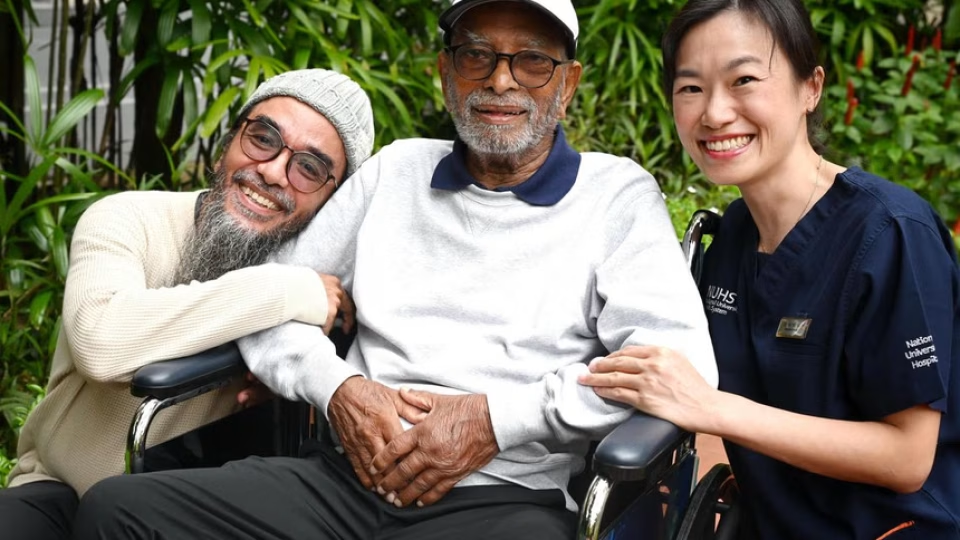February 17, 2025
SINGAPORE – When Mr Ibrahim Mohamed, 94, visited a private dental clinic in 2020 to address discomfort resulting from dental problems such as loose teeth, the dentist refused to treat him because of his advanced age and underlying health issues that included heart conditions and hypertension.
The dentist instead recommended that he go to a public health institution, which would be better placed to address his health issues.
Mr Ibrahim visited the National University Centre for Oral Health Singapore (Nucohs), where he underwent extractions and received fillings as well as his first set of dentures.
More recently in 2024, when his upper dentures became ill-fitting and he lost his lower dentures, he went to the Nucohs Dental Clinic @ Alexandra Hospital, which is dedicated to seniors with more complex dental issues.
When Dr Tan Mei Na, head of dental services at Alexandra Hospital, treated Mr Ibrahim in 2024, she found that his oral health had deteriorated since his last visit in 2020, and he had multiple broken and decayed teeth.
When addressing his extensive dental issues, Dr Tan made sure to pace Mr Ibrahim’s treatments across multiple visits, keeping each treatment simple to ensure he was comfortable.
His son, Mr Mohamed Ismail Ibrahim, said he appreciated the dentist’s efforts to help his father feel more at ease. His father, a retired gardener, had always relied on charcoal or other traditional methods to clean his teeth.
“I don’t think he had ever been to a dentist all this while,” added Mr Ismail, a 60-year-old freelance medical escort.
His father is one of a growing number of seniors seeking specialised dental care in recent years.
Between April 2023 and July 2024, more than 3,000 patients were treated at the Nucohs Dental Clinic @ Alexandra Hospital.
Over at the Geriatric Special Care Dentistry Clinic – a clinic under SingHealth’s National Dental Centre of Singapore – the total number of patients seen had risen to 10,593 by November 2024, up from 8,534 in 2018.
Both clinics are customised to meet the needs of elderly patients, with treatment rooms big enough to accommodate wheelchairs and equipped with specialised equipment such as wheelchair tilters to allow patients with mobility issues to remain in their wheelchairs during treatment.
Each room also has an intra-oral X-ray machine, so patients do not need to get scans done elsewhere.
Singapore is expected to become a super-aged society – where at least 21 per cent of the population is aged 65 or older – by 2026, with one in four people expected to be 65 and above by 2030.
Dr Tan said many senior patients have teeth that are in poor condition for a variety of reasons, ranging from years of neglect to a phobia of going to the dentist.
Treating seniors requires not just an understanding of their medical conditions, but also other factors such as the medication they are on, their cognitive status and their social background.
“We try to approach it in a very holistic manner,” Dr Tan added.
Dr Yang Jingrong, who heads the Geriatric Special Care Dentistry Clinic, noted that a larger proportion of the elderly are being diagnosed with chronic diseases than before, and there are also more frail seniors, such as those with dementia and Parkinson’s disease.
Such seniors have greater dental care needs.

Mr Ibrahim’s dentures being examined at the National University Centre for Oral Health Singapore Dental Clinic @ Alexandra Hospital in October 2024. PHOTO: THE STRAITS TIMES
Dementia impairs cognitive function and may result in behavioural changes, and seniors with this condition may be uncooperative when it comes to oral hygiene and dental treatment, Dr Yang said.
Meanwhile, Parkinson’s disease and stroke – which are forms of neurodegenerative conditions – will affect the ability of a person to protect oral hygiene, she added.
“In addition, people with neurodegenerative conditions may suffer from swallowing difficulties or dysphagia, causing risks of aspiration (accidental inhalation of a fluid or solid) when receiving dental treatment that involves water,” she said.
In 2023, almost 74,000 senior citizens here had dementia, while about 8,000 had Parkinson’s.
Dr Tan estimates that she has seen a 20 per cent to 30 per cent increase in the number of patients with cognitive impairment over the years.
During their undergraduate studies, dentists are trained to treat seniors who do not require much special care, said Dr Yang. But managing patients with more complex conditions may require further training.
While geriatric dentistry is not a recognised speciality here, a two-year graduate diploma in geriatric dentistry was introduced at NUS’ Faculty of Dentistry in 2019 for those seeking further training to manage seniors with more complex conditions.
Those seeking further training in the field can also pursue a master’s degree in special care dentistry, which is currently offered only in overseas universities, said Dr Yang.
Although dentists are not required to undergo geriatric training, Dr Tan said such training “helps (dentists) to understand (elderly patients) better, their medical conditions (and) their progression”. With experience, dentists also learn how conditions like dementia can present themselves differently in patients, she added.
Dr Tan added that many seniors still feel the need to be healthy and presentable, just as they did when they were younger, and good oral hygiene should be part of that.
“We just want people to know that even in the face of challenges as they age, even with their medical conditions deteriorating, that oral healthcare should still be prioritised,” she said.
“It should be part of healthy ageing; for them to be able to have clean teeth.”


